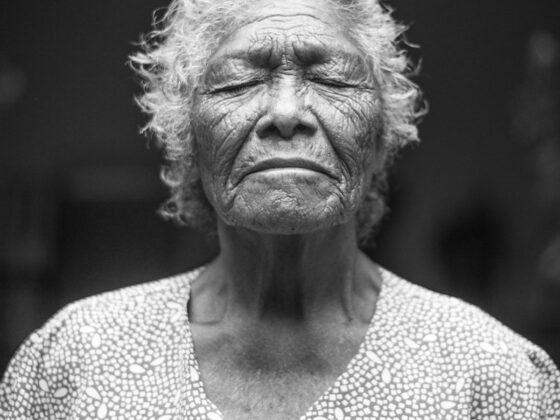Depression is an insidious mental health condition that often hides behind a mask of normalcy, even happiness.
This is particularly evident in the world of celebrities, where the pressure to maintain a perfect public image can lead to a stark contrast between outward appearances and inner turmoil. The tragic suicides of beloved public figures serve as a sobering reminder that depression doesn’t discriminate and that even those who seem to “have it all” can be fighting silent battles.
One of the most shocking examples of this phenomenon was the death of Robin Williams in 2014. Known for his infectious energy, rapid-fire wit, and ability to make others laugh, Williams seemed the epitome of joy and vitality. Yet, behind his beaming smile and twinkling eyes lay a profound struggle with depression and anxiety. In interviews and public appearances leading up to his death, Williams continued to exude charm and humor, giving no outward indication of the depths of his suffering. His suicide at the age of 63 left fans and colleagues stunned, highlighting the often invisible nature of mental health struggles.
Another poignant example is that of Chester Bennington, the lead singer of Linkin Park. Just days before his suicide in 2017, Bennington was photographed with his family, smiling and seemingly carefree. The image, which later went viral, shows Bennington surrounded by his children, his face lit up with what appears to be genuine happiness. This stark contrast between his final public image and the reality of his inner turmoil underscores how deceptive appearances can be when it comes to mental health.
Kate Spade, the renowned fashion designer, was known for her colorful, whimsical designs that seemed to embody joy and optimism. Her brand was synonymous with a cheerful, put-together lifestyle. Yet, in June 2018, Spade took her own life, leaving many to wonder how someone whose work brought so much brightness to others could be grappling with such darkness. In the weeks leading up to her death, Spade had maintained her public persona, attending events and continuing to present a facade of success and happiness.
The death of Anthony Bourdain in the same month as Spade further emphasized how depression can lurk behind a veneer of adventure and success. Bourdain, celebrated for his travel shows that explored culture through food, seemed to be living a dream life. His Instagram posts from the days before his suicide showed him enjoying meals with friends, exploring new places, and engaging in his passion for storytelling. The disparity between these final images and the reality of his mental state shocked fans and fellow celebrities alike.
Even in the world of sports, where physical prowess and mental toughness are celebrated, depression can take hold. Junior Seau, a legendary NFL player, took his own life in 2012. In the months leading up to his death, Seau continued to make public appearances, often smiling and engaging with fans. His suicide came as a shock to many who saw him as the embodiment of strength and resilience.
These examples illustrate a crucial point about depression: it often doesn’t look like what we expect. The stereotypical image of a depressed person – someone who is visibly sad, withdrawn, or unable to function – doesn’t always align with reality. Many individuals with depression, especially those in the public eye, become adept at masking their symptoms. They may continue to fulfill their professional obligations, maintain social relationships, and even appear cheerful and engaged.
This ability to “perform” happiness while battling internal demons is sometimes referred to as “smiling depression” or “high-functioning depression.” It’s a phenomenon that can make it particularly difficult for friends, family, and even medical professionals to identify when someone is struggling. The pressure to maintain a positive public image can exacerbate this tendency, leading individuals to push down their true feelings and present a facade of wellness to the world.
The tragic deaths of these celebrities serve as a stark reminder that we must look beyond surface appearances when it comes to mental health. Depression doesn’t always manifest in obvious ways, and someone’s public persona may be far removed from their private struggles. This disconnect can make it challenging for those suffering to seek help, as they may feel pressure to maintain the illusion of happiness and success.
Moreover, these cases highlight the need for greater awareness and understanding of mental health issues. The stigma surrounding depression and other mental health conditions can prevent individuals from seeking help, even when they have access to resources. In the case of celebrities, the fear of public scrutiny or damage to their career can be an additional barrier to seeking treatment.
It’s crucial to recognize that depression is a complex, multifaceted condition that can affect anyone, regardless of their outward success or apparent happiness. The smiles, laughter, and seemingly carefree moments captured in photos or videos of these celebrities in their final days are a poignant reminder that appearances can be deceiving.
As a society, we must work to create an environment where individuals feel safe discussing their mental health struggles without fear of judgment or repercussions. This includes fostering open conversations about depression, anxiety, and other mental health conditions, and promoting the message that seeking help is a sign of strength, not weakness.
Furthermore, we need to be more attuned to the subtle signs that someone may be struggling. While we can’t always see behind the mask that people wear, we can cultivate empathy, practice active listening, and create spaces where people feel comfortable sharing their true feelings.
The deaths of these beloved public figures serve as a call to action. They remind us to check in on our friends, family, and colleagues – even those who seem to have it all together. They underscore the importance of mental health awareness and the need for accessible, destigmatized mental health care.
In remembering these celebrities and the contrast between their public personas and private struggles, we are reminded of the complexity of human experience. Depression doesn’t discriminate based on fame, wealth, or success. It’s a condition that requires understanding, compassion, and proactive support.
As we look at the smiling faces in those final photos and videos, let us remember that behind every smile, there may be a story we don’t know. Let these tragedies inspire us to be more compassionate, more aware, and more willing to reach out and offer support to those around us. For it is only by breaking the silence and stigma surrounding mental health that we can hope to prevent such losses in the future.










